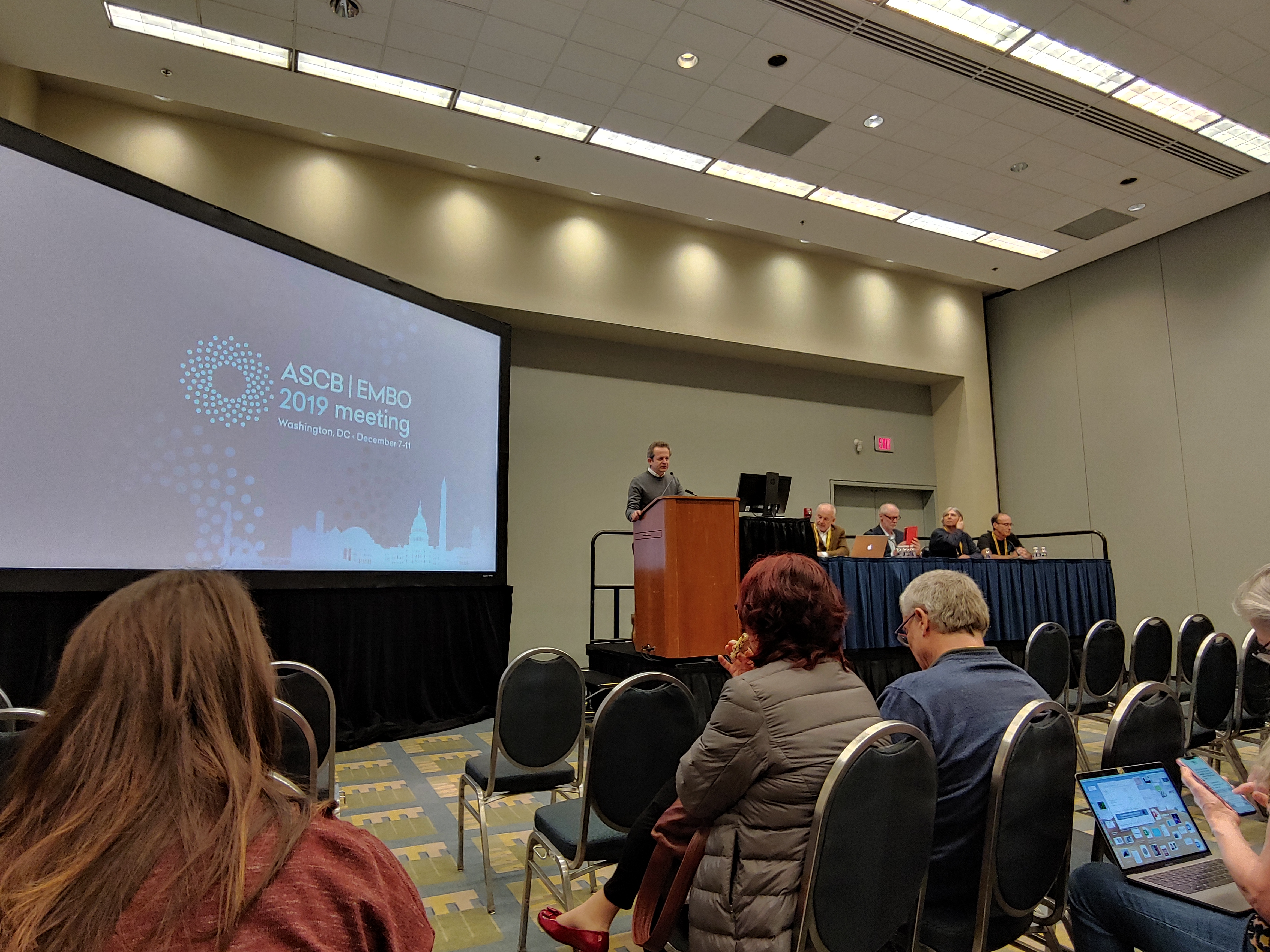Defining open science
If one thing was clear among the experts, it's that open access, and hopefully open science will become a reality in the very near future. As panelist, John Inglis, Executive Director of Cold Spring Harbor Laboratory and co-founder of bioRxiv, offered that open science can mean different things. He explains that open science should be freely accessible, providing "unhindered availability to anyone who wants it". It can mean transparency, being freely disclosed in regards to the evaluation of manuscripts, including the names of reviewers, technical methods and analysis. Taking it a step forward he suggests that open science should be inclusive and welcoming, engaging with people who don't do science but who are directly affected by it (think patients, advocates, and citizen scientists). And lastly, Inglis suggests that open science should be "candid and forthright, even honest," providing scientific truths.
How we can achieve open science
With these definitions in mind, a thoughtful conversation followed that sought to engage the scientific community in the goals of open access and the path that the stakeholders will take to achieve it. All the panelists agreed that efforts to achieve this goal will need to come from both the top (universities, funding agencies) down (researchers) and vice versa. Only with systematic restructuring and re-imagining of the system will open science be possible.

Many scientists in the audience expressed concerns how the weight that publications hold over their careers and the limitations it places on making changes to the existing system. Each panelist stated that there needs to be new ways to evaluate scientific papers that minimizes the negative consequences for scientists. Jean-Claude Burgelman, Head of Unit Open Science, Directorate-General for Research and Innovation, European Commission, believes that this can be achieved with a "zero-sum game", where there can be return on investment for science, scientists, and funding agencies.
The session was intentionally designed to bring the scientific community to the table to help shape how they think science should be done. Several of the panelists believed that scientists should take responsibility and express the changes that they would like to see in the system. Without buy-in from the scientific community, open science will not be successful.
On the other hand, funding agencies and universities must also change their practices to accommodate open science, offering new incentives and institutional changes that make open science possible. One example is preprint publishing, which provides unrestricted access to thousands of scientific papers to the public. It is a great first step in the path towards truly open science.
With open science comes sharing data and concerns over data protection and data integrity. These are essential questions that must be solved in order to reach truly open science. Jodie Nunnari, University of California, David and Chief editor of the Journal of Cell Biology, suggests that real-time data platforms can virtually eliminate the reproducibility crisis and speed innovate in an open system. Although she cautions that peer-review and open access are different.
The attitude among the panel was positive with many of them stating that "progress is being made," offering hope that change is on the horizon.
What do you think is the path towards open science? Do you think it's possible? What changes, as a researcher, would you like to see in the system? Contact the editor today to learn more.
Copyright © 2019 scienceboard.net



